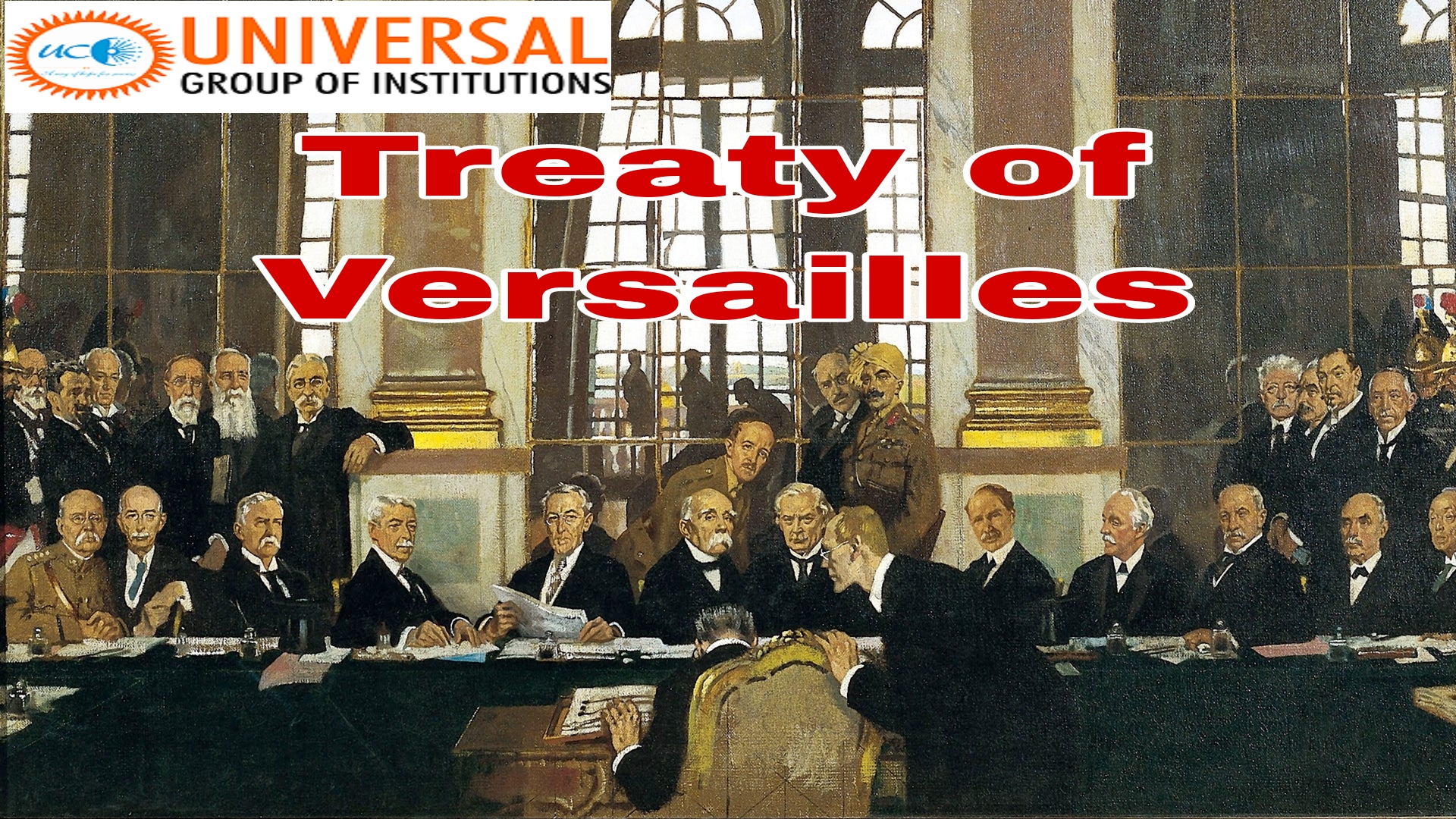Concluded in 1919, the treaty of Versailles was a failure, both in its intentions and outcomes. Examine.
The Treaty of Versailles, 1919, was the most significant important peace document signed at the end of the First World War, between Germany and the Allied Powers.
Intent of the Treaty:
At the end of the hostilities of the First World War, the hope was to address the causes of conflict, restrict the growing power of Germany and restore peace by forging international co-operation.
However, in practical terms the negotiations were dominated by the Allied powers of Europe, especially France and Britain, who dictated the negotiations on their own terms. This intent was visible in the treaty that came out of closed doors negotiations.
Thus, the treaty of Versailles held Germany responsible for the war, required it to pay reparations, imposed damages on it, divested it of colonial possessions and restricted its army, naval capacity and defense manufacturing. The emergence of the League of Nations was also associated with the treaty.
However, the Treaty failed in terms of both its intents and outcomes which can be understood from the following:
Failure in terms of intent:
The treaty failed to identify the root causes of WWI such as nationalistic jingoism and imperialistic rivalries.
It completely absolved the Allied powers of their role in the WWI – which later became a source of new tensions in Europe.
It was a case of dictated peace as Germany was not allowed to negotiate the terms.
It was a compromise between President Wilson’s Fourteen Points and his desire to make a “just
peace”, and the French leader Clemenceau’s desire for revenge.
Failure in terms of outcomes:
It placed a number of restrictions on Germany and put it in financial ruin, leading to economic
depression and inflation, ultimately paving the way for the rise of Adolf Hitler.
The Treaty lacked the enforcement mechanism and lack of willingness on the part of Allied powers. Taking advantage of it, Germany violated many terms. For instance, Germany reoccupied the demilitarized zone in the Rhineland in 1936. The League of Nations lacked participation from important nations such the US, China and the USSR.
It remained a non-starter.
It failed in one of its very basic objectives of preventing the future World War II from occurring.
In sum, it can be argued that the treaty of Versailles, as it was drafted and applied, was neither severe enough to hold down the Germans forever, nor generous enough to help the vanquished adjust to the new situation





